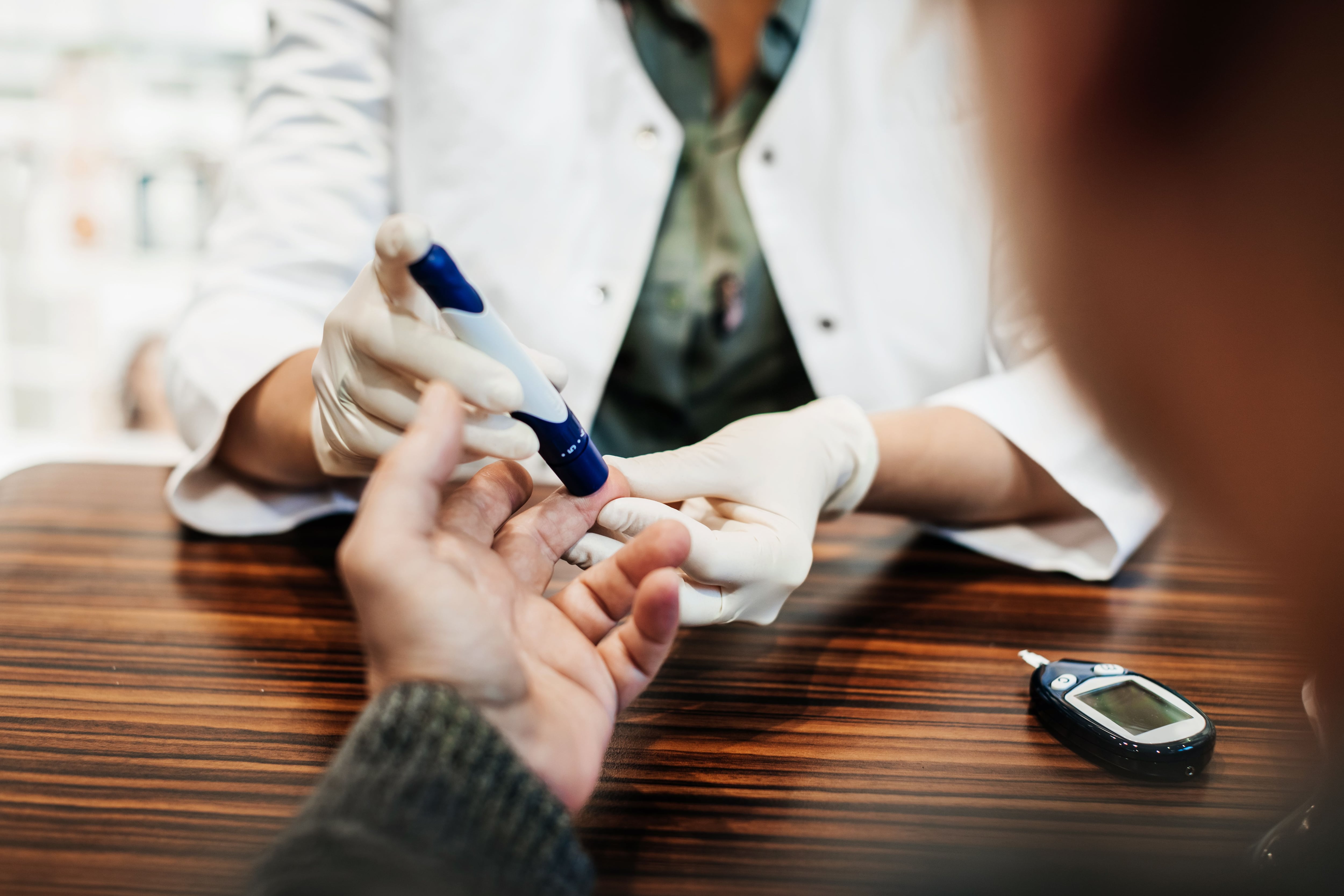

The effects on the body of COVID-19 infection is still the subject of study in much of the world. Infection in its severe, or even mild form, leaves multiple sequelae in the sick. Now, new research published in the specialized journal Diabetology, of the European Association for the Study of Diabetes (EASD), suggested a association between mild cases of COVID-19 and the subsequent diagnosis of type 2 diabetes.
The analysis of health records of 1,171 general and internal medicine practices throughout Germany by specialists Wolfgang Rathmann and Oliver Kuss from the Diabetes Center at Heinrich Heine University in Dusseldorf, Germany, and Karel Kostev, a member of IQVIA in Frankfurt, Germany, a world leader in data use, found that adults recovering from mostly mild COVID-19 have a significantly higher risk of developing type 2 diabetes than a matched control group that had other types of respiratory infections, which are also frequently caused by viruses.
According to the researchers, these results indicate that screening for diabetes should be recommended in individuals after recovery from mild forms of COVID-19. This potential link between COVID-19 and diabetes is also being investigated in several ongoing studies, including the CovidiAB registry and other studies related to the so-called “prolonged COVID”.
Previous studies have indicated that inflammation caused by SARS-CoV-2 can damage insulin-producing beta cells, causing them to die or change their functioning, resulting in acute hyperglycemia (high blood glucose).
It is also thought that a possible cause is that tissues become less reactive to insulin due to inflammation in the body. Sedentary lifestyles caused by isolations at the beginning of the pandemic could also be playing a triggering role. This may explain why new-onset cases of hyperglycemia and insulin resistance have been reported in patients with COVID-19 without a history of diabetes.

However, it is not clear whether these metabolic changes are temporary or whether people with COVID-19 may be at increased risk of developing chronic diabetes. In addition, there is a lack of studies that investigate the incidence of diabetes after recovery from COVID-19 in mild cases.
To provide further evidence, the researchers surveyed electronic health records from the Disease Analyzer database, which included information on 8.8 million adults who completed 1,171 general and internal medicine practices in Germany between March 2020 and January 2021.
This included 35,865 patients who were diagnosed with COVID-19. The incidence of diabetes after the virus was compared with a cohort of people (average age 43 years; 46% women) who were diagnosed with acute upper respiratory tract infection (AURI) but not COVID-19 in the same period, organized by sex, age, health insurance coverage, month rate of COVID-19 diagnoses and comorbidities (obesity, high blood pressure, high cholesterol, heart attack, stroke).
Persons with a history of COVID-19 or diabetes, and those who used corticosteroids within 30 days of the survey date, were excluded. During an average follow-up of 119 days for COVID-19 and 161 for AURI, the number of hospitalizations was similar in both groups (COVID-19:3.2% vs controls: 3.1%; median hospitalizations: 1 in both cohorts).
Researchers found that new cases of type 2 diabetes were more common in patients who tested positive for COVID-19 than in those with acute upper respiratory tract infection (15.8 vs 12.3 per 1000 people per year), giving an incidence rate (IRR) of 1 2.8.
In simple terms, this means that the relative risk of developing type 2 diabetes in the COVID group was 28% higher than in the group with acute upper respiratory tract infection.
“COVID-19 infection can lead to diabetes by up-regulation of the immune system after remission, which can induce pancreatic beta cell dysfunction and insulin resistance, or patients may have been at risk of developing diabetes due to obesity or prediabetes, and COVID- 19 in their bodies accelerated it,” says the lead author, Professor Wolfgang Rathmann.
“The risk of abnormally high blood sugar levels in people with COVID-19 is likely to be continuous, depending on risk factors such as beta cell injury, an exaggerated inflammatory response, and changes in weight gain and decreased physical activity related to the pandemic,” co-author Oliver completed Kuss.
Professor Rathmann added that “since patients with COVID-19 were only followed for about three months, more follow-up is needed to understand whether type 2 diabetes after mild COVID-19 is only temporary and can be reversed after they have fully recovered, or if it leads to a chronic condition.”
KEEP READING: